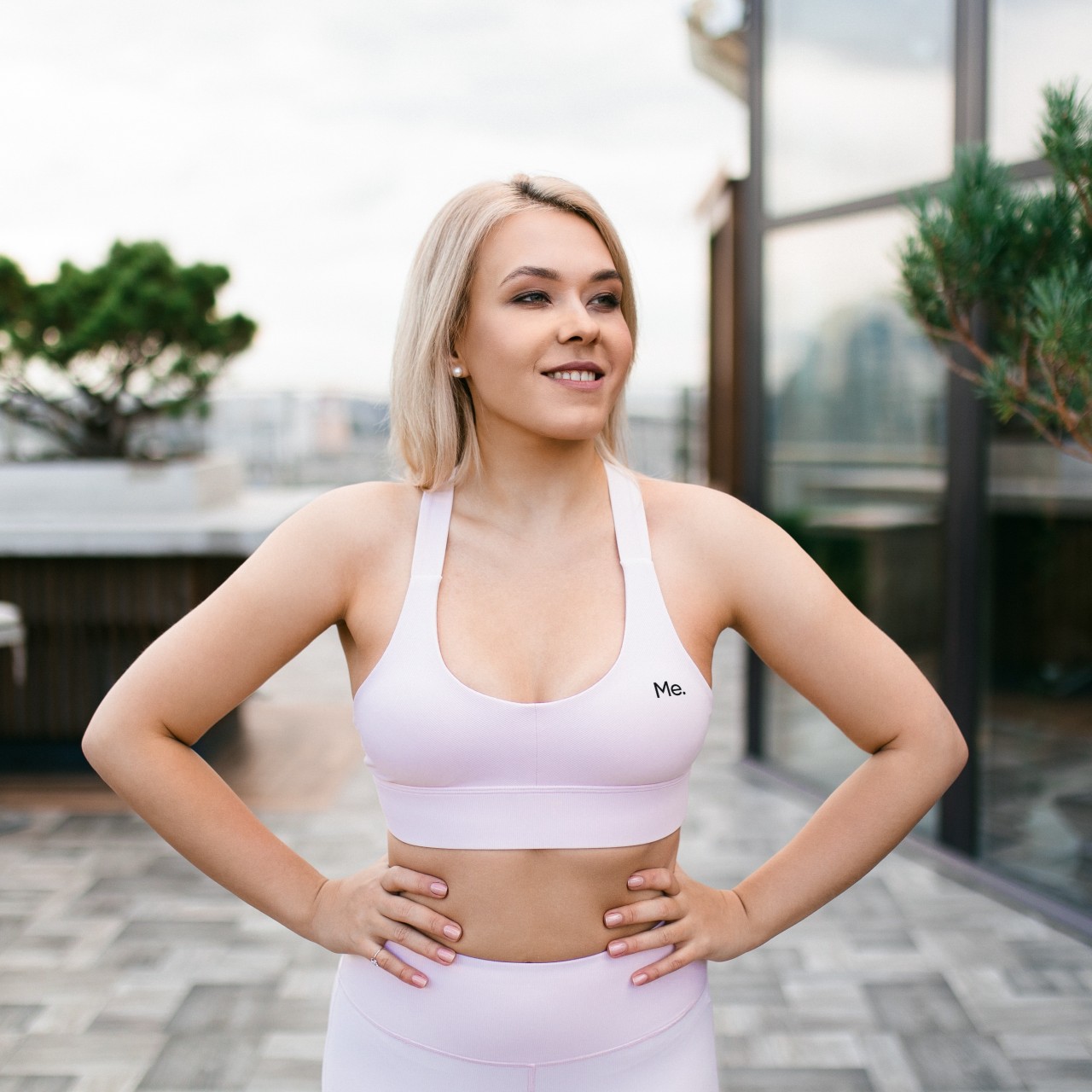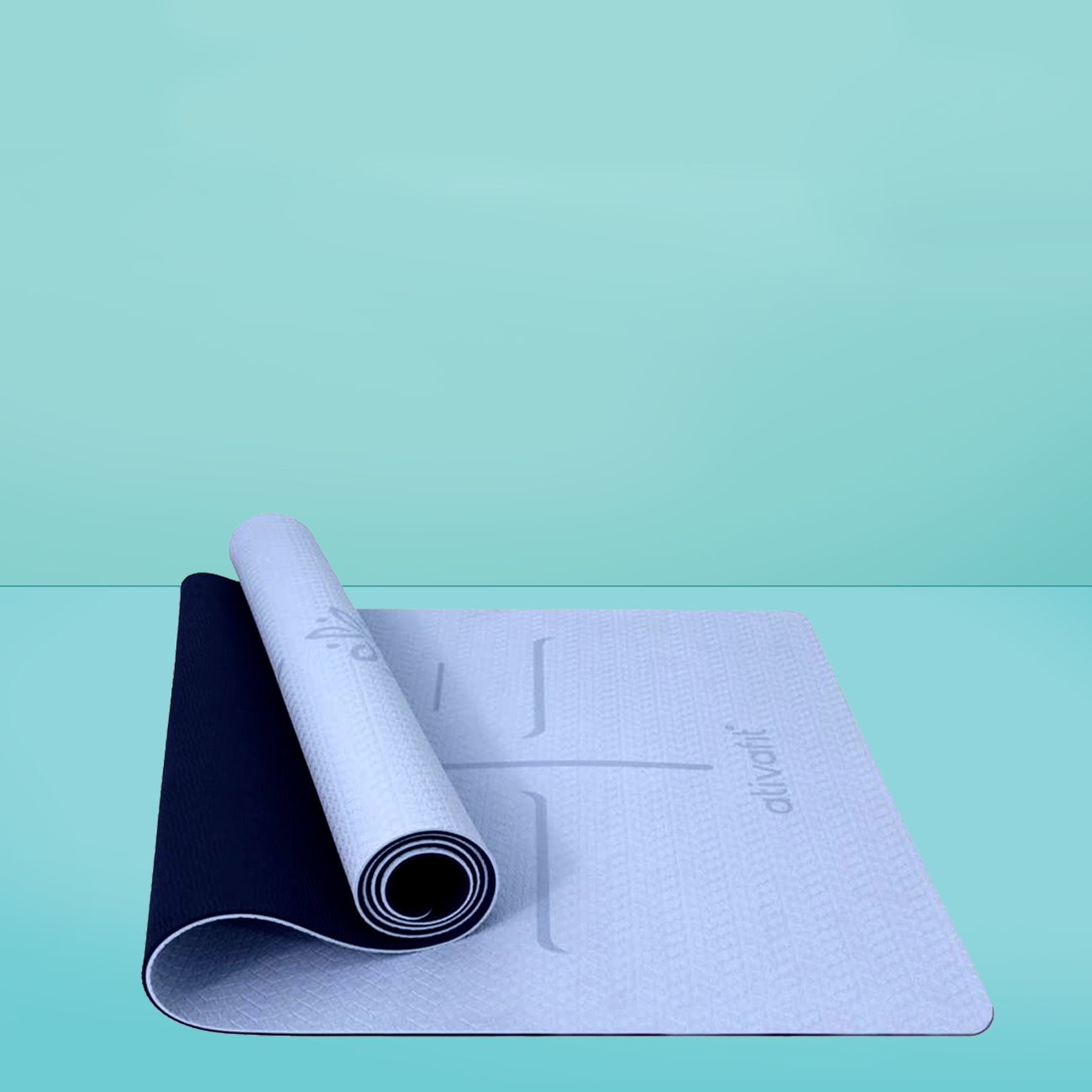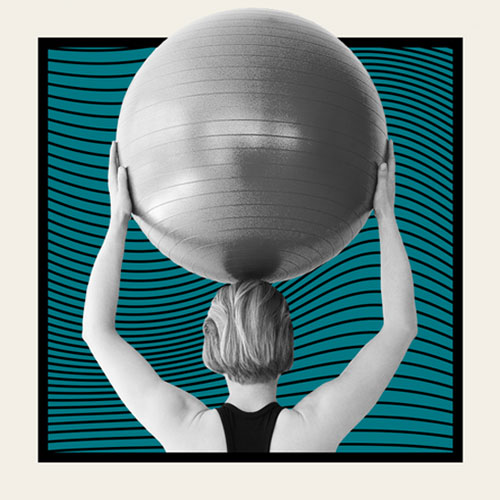Sitting Pretty
Dry eyes? Weight gain? You might not realize what being parked at a desk is going to your body. Here, cubicle-caused issues and their surprisingly easy fixes.

DIABETES RISK
Stressful job environments can raise women's risk of heart attack by 88 percent, but those who sit all day also have a greater chance of developing type 2 diabetes, according to researchers at the University of Leicester Departments of Health Sciences and Cardiovascular Sciences.
Prevention: To keep your blood pumping, take a quick break once an hour to walk to the elevator or watercooler.
Solution: A study in England tested sedentary workers' caloric burn by placing small pedal machines under their desks for four weeks, and found using the machine for about 23 minutes a day helped. Try the Aerobic Pedal Exerciser, sold on amazon.com.
MISALIGNED HIPS
A female's wider hip sockets put more pressure on hips, knees, and the spine, which can lead to weakness, tendinitis, and more.
Prevention: Adjust your chair's settings so that the angle between your back and legs is 90 degrees or less, allowing better rotation for your hip flexors.
Stay In The Know
Get exclusive access to fashion and beauty trends, hot-off-the-press celebrity news, and more.
Solution: Yoga stretches, like the lizard (a low lunge with your back leg straight and forearms on the ground), can release tension in your hips and hamstrings and open the spine, according to Tara Stiles' book Yoga Cures.
CARPAL TUNNEL SYNDROME
Caused by a pinched median nerve in the wrist, CTS can be three times more common in women's smaller wrists than in men's, says the National Institute of Neurological Disorders and Stroke.
Prevention: A study by the Biodynamics Lab at Ohio State University compared females using ergonomic keyboards with those using standard ones. Subjects who typed slower on an angled keyboard with a split down the middle found it helped alleviate awkward wrist and forearm posture. A good option is the Adjustable Split Keyboard from relaxtheback.com.
Solution: Wear a prescribed brace at work, giving yourself a 15-minute break every hour. And sleep in it at night, says Dr. John T. Knight, director of the Hand and Wrist Institute at DISC Sports and Spine Center. Still sore? Icing and minor stretches, like rolling the wrist, help treat discomfort at the end of the day.
WEIGHT GAIN
Sixty-one percent of Americans snack at their desks, which adds up to plenty of extra calories.
Prevention: Preparation is key, according to Academy of Nutrition and Dietetics spokeswoman Angela Meadow, who says a balanced lunch will help that 3 p.m. blood-sugar dive. Good options are broth-based soups with a side salad and fruit or a Healthy Choice frozen meal with added green vegetables.
Solution: It takes about 20 minutes for your body to realize it's full, so if you feel hungry, get up and move around, drink water, or chew sugar-free gum to see if it goes away. To keep blood sugar stable, stock up on healthy snacks, like nuts and yogurt.
DRY EYES
Because more women fill clerical jobs, Dr. Jeffrey R. Anshel of Corporate Vision Consulting says they tend to suffer an increase in eyestrain. "Your eyes are not designed to keep focusing and moving repetitively across a computer screen," he says.
Prevention: Practice the "20-20-20 rule." When your eyes are focused on an object in the distance, they're meeting optical infinity, in which eyes are totally at rest. For 20 seconds every 20 minutes, take a break and look 20 feet away.
Solution: Lowering computer monitors can relieve eyes from straining to get a close look. Also, blink more. People under normal conditions blink 12 to 15 times a minute, but those reading on a computer blink only seven times.
VARICOSE VEINS
Sitting for an extended period of time can increase chances of developing varicose or spider veins — conditions that affect about 50 percent of women.
Prevention: Tights with a high amount of Lycra can compress the legs, boosting circulation and calming symptoms.
Solution: Laser procedures may help, but can be painful. Instead, try Asclera, a form of sclerotherapy, where a soap-like solution is injected into the veins via tiny needles the size of a strand of hair. One injection can treat an entire patch of veins with minimal pain.
-
 Queen Camilla Dazzles in a $10 Million Brooch With Ties to Queen Victoria and Princess Diana
Queen Camilla Dazzles in a $10 Million Brooch With Ties to Queen Victoria and Princess DianaThe Queen looked regal in blue during a state visit to Italy with King Charles.
By Kristin Contino Published
-
 James Middleton Admits His Son "Spent the First Year of His Life Thinking He was a Dog"
James Middleton Admits His Son "Spent the First Year of His Life Thinking He was a Dog""He'd crawl around on all fours, which was entertaining to watch."
By Kristin Contino Published
-
 Jodie Turner-Smith’s Goddess Braids Are the It-Girl Protective Hairstyle for Summer
Jodie Turner-Smith’s Goddess Braids Are the It-Girl Protective Hairstyle for SummerThe actress revealed stunning goddess braids while promoting her new TV show. See her gorgeous look here.
By Ariel Baker Published
-
 There's a Huge Gap in Women's Healthcare Research—Perelel Wants to Change That
There's a Huge Gap in Women's Healthcare Research—Perelel Wants to Change ThatThe vitamin company has pledged $10 million to help close the research gap, and they joined us at Power Play to talk about it.
By Nayiri Mampourian Published
-
 BetterMe Will Make Your New Year’s Resolutions Last the Other 12 Months
BetterMe Will Make Your New Year’s Resolutions Last the Other 12 MonthsSponsored BetterMe: Health Coaching uses a psychology-based program to approach your health goals from all angles, so they stay within reach.
By Sponsored Published
-
 Everlywell's At-Home Test Kits Are 40% Off
Everlywell's At-Home Test Kits Are 40% OffThe testing company is offering big savings on some of their most popular kits.
By The Editors Published
-
 The Truth About Thigh Gaps
The Truth About Thigh GapsWe're going to need you to stop right there.
By Kenny Thapoung Published
-
 Don't Miss Frida's Realistic Breastfeeding Ad That Aired at the Golden Globes
Don't Miss Frida's Realistic Breastfeeding Ad That Aired at the Golden GlobesThe commercial accurately depicts the struggles of breastfeeding.
By Zoe Guy Published
-
 The 10 Best Workout Mats for Every Type of Exercise
The 10 Best Workout Mats for Every Type of ExerciseDoing yoga or HIIT in your home gym just got so much better.
By Stefani Sassos, MS, RDN, CSO, CDN, NASM-CPT, Good Housekeeping Institute Published
-
 The 20 Best At-Home Fitness Equipment and Accessories
The 20 Best At-Home Fitness Equipment and AccessoriesAlexa, play "The New Workout Plan."
By Taylore Glynn Published
-
 Reflections on Becoming a Doctor During Two Epidemics
Reflections on Becoming a Doctor During Two EpidemicsMore than 36,000 new doctors were minted last month. They'll start their careers battling coronavirus and the racism that fuels its disproportionate outcomes.
By Yoo Jung Kim Published